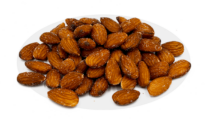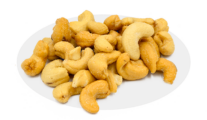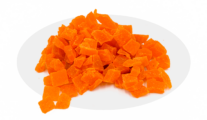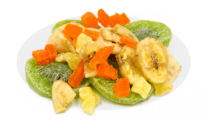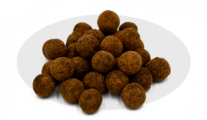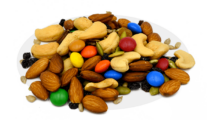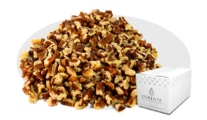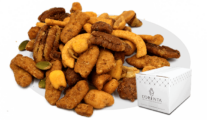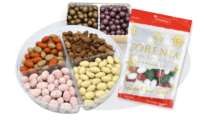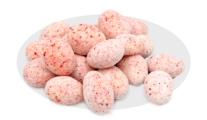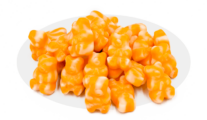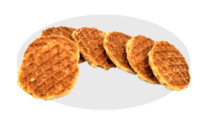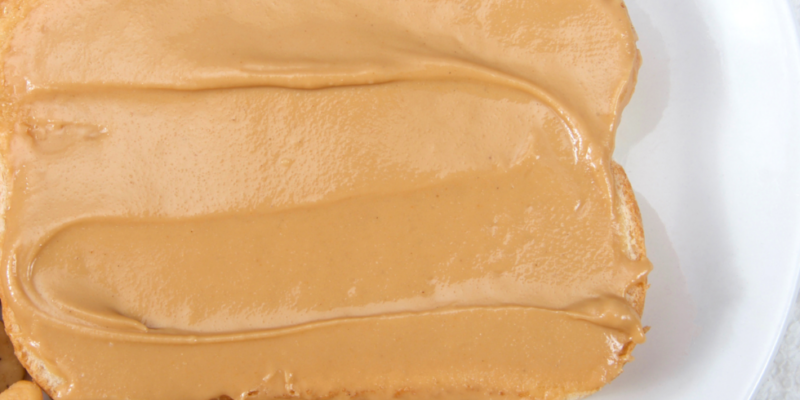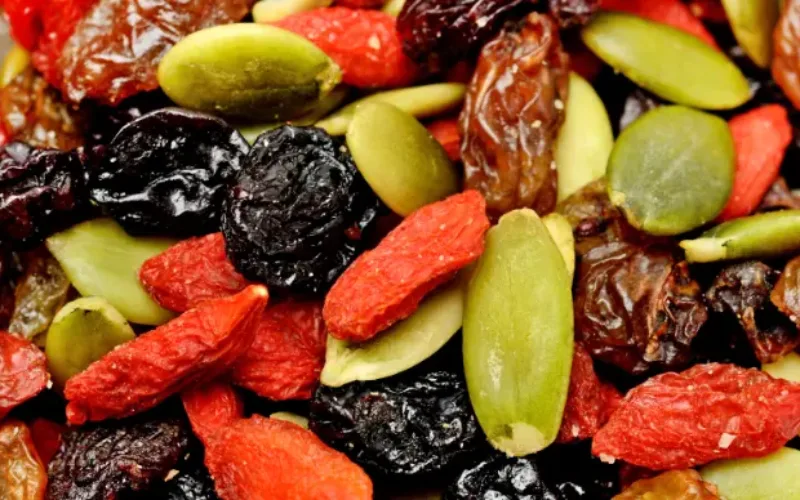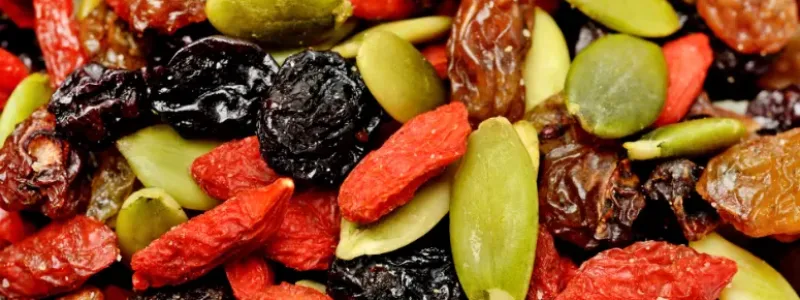Written By Sam Henselijn
Cashew butter is a spread created from cashews that have been baked or roasted. It has a rich, creamy flavor, and the oils and solids separate readily when preserved. You’re most likely interested in learning how to make cashew butter at home. Cashews, coconut oil, and a food processor are all you’ll need.
Ingredients
You’re missing out if you haven’t tried this butter yet. It’s also quite easy to make. Only two ingredients, one machine, and around 15 minutes are required.
Unsalted, Roasted Cashews: When creating homemade cashew butter, make sure to use roasted cashews. Raw cashews can be used when creating raw homemade cashew butter, although roasted cashews are recommended.
Oil: If you’re allergic to coconut, use another oil. Once the nut butter has thickened, the oil can assist speed up the process.
Instructions
This recipe makes a creamy, smooth, and rich cashew butter that tastes as amazing as it looks and can be made in the blink of an eye.
- Process the roasted, salted cashews in the food processor. It
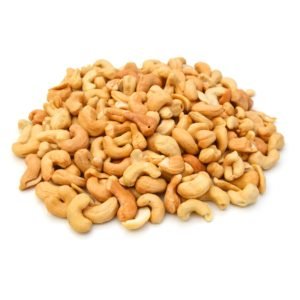 will start crumbly before clumping and sticking to the sides.
will start crumbly before clumping and sticking to the sides. - Stop the food processor and scrape the sides before turning it back on.
- Pour in the melted coconut oil while the machine is running.
- Continue to process until the butter is smooth and creamy.
Is cashew butter keto?
On the list of top nut jars of butter for the keto diet, cashews come in first. Cashews are abundant in lipids and energy; however, they have a greater carb content, with 9 grams per serving. To stay in ketosis, keep your servings of cashew butter to a minimum.
A two-tablespoon dose of this butter also contains the following ingredients:
188 calories per gram
15.8 g fat
Protein: 5.6 g Fiber: 0.6 g
Cashews are high in oleic acid, a monounsaturated fatty acid (MUFA). This MUFA has numerous health advantages.
Cashew butter’s high-fat content, paired with its low sugar profile, is ideal for the keto diet. In keto-friendly baked products like muffins and cookies, this butter is a regular component.
What is cashew butter?
Cashew butter is a spread created from cashews that have been baked or roasted. It has a rich, creamy flavor, and the oils and solids separate readily when preserved. Protein, unsaturated fats, and Vitamin B are all abundant in this butter. It has lower fat content than most nuts.
During the Cold War, cashew butter was one of the meals packaged in metal cans for US civil defense survival kits. Raw cashew butter is superior to roasted one, according to the University of Kentucky Cooperative Extension Service, since it contains more nutrients. This butter can be spread on toast, used as a dip for apple slices, or used as the foundation for vegan cashew nut cheese.
Is cashew butter healthy?
Cashew butter is a nutrient-dense spread. It lacks omega-3 fatty acids; however, it is high in vital amino acids, monounsaturated fatty acids, and magnesium. All of these nutrients are beneficial to the health of your bones, blood pressure, metabolism, and immune system.
Nutrients in cashews
This butter is high in a variety of nutrients, including:
- Fats that are good for you
- Phytochemicals
- Fiber
- Vitamins
- Minerals
Nut butter contains different nutrients depending on the type of nut; however, all nuts are wonderful providers of healthful fats. A serving of nut butter provides a wealth of nutrients.
The benefits
Cashews, which are a natural product, can help your health in a variety of ways if consumed in moderation.
- Cashews are high in heart-healthy fats that can help lower blood pressure and cholesterol levels. Potassium, Vitamin E, B6, and folic acid are micronutrients that protect against heart disease.
- Cashews can be included in a weight-loss diet in small amounts. And it’s not cashews; all nuts are abundant in calories while still being quite nutritious. Portion control is crucial when it comes to eating nuts as part of a weight-loss regimen.
- Cashews include antioxidants zeaxanthin and lutein, which can help with eye health. Eating cashews can protect your eyes from injury and help you avoid vision loss as you become older.
- Cashews contain copper and iron as well. The two nutrients work together to aid red blood cell production. Cashews are also good for your bones if you eat them regularly.
Is cashew butter high in cholesterol?
Cashew butter contains no dietary cholesterol. Peanut butter, almond butter, cashew butter, and pistachio butter (all four nut jars of butter) are high in unsaturated fats and low in saturated fats.
Cashews are a nutrient-dense food that can aid in the treatment of numbness in the feet, which is common among people with diabetes. A handful of cashews eaten every day can also assist with nighttime leg cramps. Cashews are also good for keeping blood sugar levels in check.
The sweet, creamy richness of cashew butter has a way of making us swoon. And the fact that it’s packed with minerals and loaded with heart-healthy fats is just the “icing” on our apple slices.
Sam Henselijn Author’s Biography – Meet L’Orenta Nuts CEO
Copyright 2024 L’Orenta Nuts
L’Orenta Nuts proudly holds the SQF food safety certification, symbolizing our unwavering dedication to upholding the highest standards of food safety and quality. This certification guarantees that our products undergo rigorous scrutiny, ensuring transparency, traceability, and adherence to global food safety regulations for the utmost consumer confidence.
L’Orenta Nuts has the HACCP (Hazard Analysis and Critical Control Points) certification is a systematic approach to identifying, evaluating, and controlling food safety hazards. It ensures that food products are produced and handled in a manner that minimizes risks and complies with safety standards.
Our GMP (Good Manufacturing Practices) certification ensures that a manufacturing facility adheres to comprehensive quality and safety standards while producing pharmaceuticals, food, and other consumer goods, promoting consistency, quality, and compliance with regulatory requirements.
L’Orenta is an FDA-approved manufacturing facility and has met the rigorous standards set by the U.S. Food and Drug Administration. It demonstrates compliance with regulations, ensuring the production of safe and high-quality food products.


